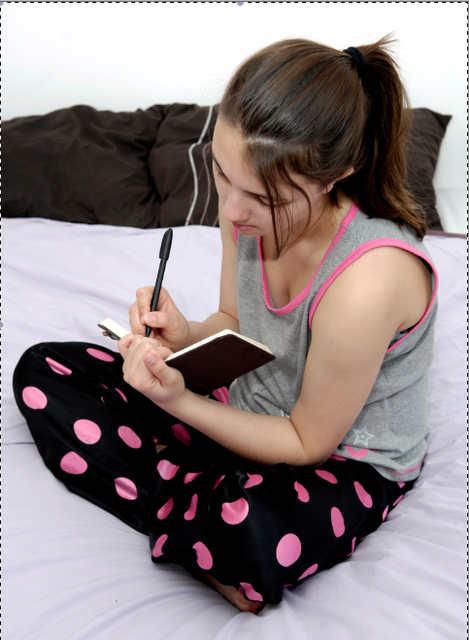Helping Your Teen Manage Instagram and the Emotions It Causes
Discover how Instagram can lead to envy, jealousy and depression

It’s a Friday night and my 13-year-old daughter has decided to spend the night in. It’s snowing and we are excited to be in our pajamas, watching a movie and eating popcorn.
When our movie ends, she reaches for her phone. “Don’t get on Instagram,” I suggest.
“Why not?” she asks with a snort. I can tell she thinks I don’t understand her teen social needs. So I explain.
“Getting on Instagram when you are home not doing anything can cause you to feel upset, left out or depressed,” I say. “Pictures on Instagram are designed to make it look like people are having the time of their lives – that every day of their life is fun-filled and action-packed. And your quiet evening at home may feel lame in comparison. Instead, think of something fun or creative to do. You will be HAVING a good time instead of LOOKING AT the good time others are having.”
Fortunately, she heeds my advice. But so many young girls don’t. They spend hours on Instagram, Twitter and YouTube peering into the lives of others and they end up feeling disappointed, depressed, envious or even jealous. And these emotions, especially envy and jealousy, can lead to bullying and hurt friendships.
In fact according to one study, peering into the lives of others through social media is making people look at themselves in comparison and many are not happy with what they see. In fact, researchers found that social networking sites like Facebook and Instagram can actually have a negative impact on teens’ moods and end up causing more distress than happiness.
The reason is simple. Most people tend to play up the positive aspects of their lives on social networking sites while excluding the negative. The result is that their Facebook profile or their Instagram posts never quite tell the whole story. So when teens fall into the trap of comparing themselves to a one-dimensional version of their peer's life, they can become envious, unhappy, depressed and even anxious that they are missing out on something. Remember, if Instagram is their only measuring stick all they see are the good things in that person’s life.
Of course, the best way to combat these negative feelings is to teach your teens to have a realistic view of social media. Remind them that what they see on social media is only one side to a person’s life.
It’s also a good idea to limit the amount of time your teens spend on social media. You want to be sure their lives don’t revolve around social networking and that they have other things to fill their free time. Limiting social networking also can prevent bullying, or at the very least lessen its impact. For more ideas on how to deal with the dangers of social media, check out 8 Ways Kids Are Using Instagram to Bully and 10 Ways to Protect Your Teen From Bullying on Instagram.
Photo courtesy of iStockphoto
Advertisement


